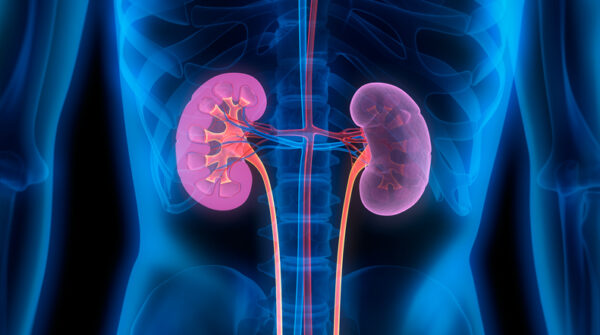

Travere Therapeutics has won FDA approval for a drug that treats a rare autoimmune disorder that is typically first noticed as blood in the urine and can progress over time to end-stage kidney failure.
The regulatory decision for Travere’s drug makes it the second FDA-approved therapy for adults with immunoglobulin A nephropathy (IgAN), a condition that stems from the buildup of the disease’s namesake antibodies in the kidney, leading to organ damage. The Travere drug, known in development as sparsentan, will be commercialized under the name “Filspari.”
IgAN, also known as Berger’s disease, affects an estimated 150,000 people in the U.S., according to San Diego-based Travere. The accelerated approval for Filspari announced last Friday comes about 14 months after the accelerated nod for Calliditas Therapeutics’ IgAN drug Tarpeyo. But Calliditas’s drug is a steroid whose immunosuppressive effect can lead to side effects throughout the body. A growing field of companies is pursuing IgAN medicines that offer therapeutic benefit without causing systemic effects. Travere is claiming the mantle for the first IgAN therapy that does not suppress the immune system.
Filspari, a small molecule formulated as a once-daily pill, is designed to selectively block two pathways associated with IgAN progression. The FDA approval specifically covers adults at risk of rapid disease progression, which Travere estimates is between 30,000 and 50,000 patients.
The FDA decision for Filspari was based on preliminary Phase 3 data showing a reduction in levels of certain proteins in the urine following treatment. That’s the same basis used for the accelerated approval of Calliditas’s drug in 2021. The speedy FDA nods for both drugs noted that clinical testing has not yet established whether treatment slows kidney function decline in IgAN patients.
The urine protein measure for Filspari happened at 36 weeks. The Phase 3 test of Filspari is ongoing, and those results could be used to confirm the drug’s clinical benefit. Additional study goals include assessing estimated glomerular filtration rate (eGFR), a measure of kidney function, after two years of treatment. Travere expects preliminary eGFR data in the fourth quarter of this year. Those results could support full regulatory approval for the drug.
The most common side effects reported in the study included swelling in the legs, low blood pressure, dizziness, elevated potassium levels in the blood, and anemia. Filspari’s label carries a black box warning that cautions physicians and patients about risks such as elevated liver enzymes, liver toxicity, and liver failure. According to the prescribing information, patients must be monitored for liver problems monthly for the first 12 months of treatment, and then every three months afterward. The drug is available only under a Risk Evaluation and Mitigation Strategies (REMS) program, which requires the company to come up with a strategy that specifically spells out how it will manage the product’s risks.
In a note sent to investors on Tuesday, William Blair analyst Tim Lugo wrote that the patient-monitoring requirement was expected after Travere announced last fall that the FDA asked the company to add liver monitoring to the REMS. He added that a modest increase in adverse effects is expected, and the higher incidence of such problems in the clinical trials do not raise any major concerns.
Travere set a $9,900 price for a 30-day supply of Filspari, which is a discount to the $14,160 price that Calliditas set for Tarpeyo following that drug’s approval. In an investor presentation, Travere said it believes the data for Filspari so far support making that drug the new treatment standard in IgAN.
Sparsentan is also in late-stage clinical development for focal segmental glomerulosclerosis (FSGS), a different rare kidney disorder. Travere expects preliminary data will become available in the second quarter of this year, followed by a supplemental new drug application in FSGS submitted to the FDA in the second half of the year. Lugo said in the research note that the Travere drug has the potential to achieve blockbuster status in both indications.
“Although eGFR data in FSGS was insufficient for an accelerated submission, we believe that the positive interim readouts from the PROTECT study in IgAN, as well as the positive interim analysis from the DUPLEX study in FSGS, provide mechanistic validation,” Lugo said. “We continue to believe that Filspari in both FSGS and IgAN represent blockbuster opportunities for the company.”
Photo: peterschreiber.media, Getty Images



















